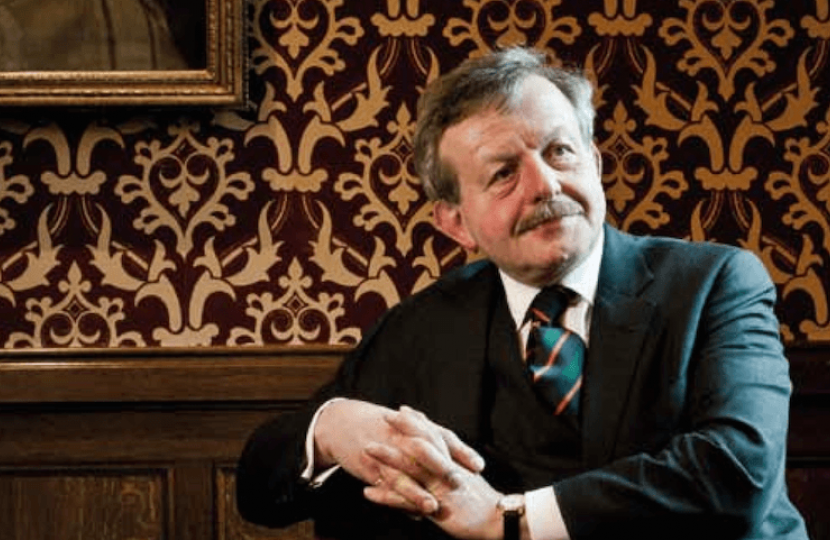
One Nation Conservatism has never been more fashionable, thanks to Boris Johnson. Alistair Lexden discusses the phenomenon in this article, which was published on the ConservativeHome website on 23 December.
On 4 December 1924, Stanley Baldwin spoke at the Royal Albert Hall, with members of his Party filling every seat. The Tories had just achieved a great election victory, winning 419 seats and gaining an overall Commons majority of 223. The Liberal vote had collapsed and Labour had lost ground in its heartlands. Baldwin knew that his Party’s approach to policy had to be redefined if it was to retain its unexpected ascendancy.
Baldwin told his audience that the Party must show that “we stand for the union of those two nations of which Disraeli spoke two generations ago: union among our own people to make one nation of our own people at home which, if secured, nothing else matters in the world.”
That was the first time that the phrase that was to become so famous had been heard. During the five years that followed, Neville Chamberlain, the most remarkable social reformer the Tories have ever had, gave substance to Baldwin’s vision. The social services became the largest item of public spending for the first time; contributory pensions were introduced for most working people ; the framework of a national health service, Chamberlain’s greatest passion, began to take shape; a massive house-building programme began which, in the 1930s, rose to an all-time record level.
Conservatives today would be proclaiming proudly that they were Baldwinian One Nation Tories if the founding father’s reputation had not been so gravely damaged, very unfairly in my view, by the widespread belief after 1939 that he had not rearmed Britain in the face of the Nazi menace. The high unemployment which blighted the inter-war years also cast a shadow over his achievements.
Churchill, who reversed his once high opinion of Baldwin, was disinclined to use his trademark term. He referred to Tory democracy as his guiding inspiration, a vague phrase coined by Lord Randolph Churchill, the father he adored. Asked what it meant, Lord Randolph replied, “mainly opportunism.”
Nothing more might have been heard of One Nation if a number of able, ambitious younger Conservatives, elected for the first time in 1950, had not adopted it as the name of a group they formed to win attention for themselves as advocates of moderate ideas suited to the post-war world of consensus politics.
It was Angus Maude, the possessor of a powerful political mind, who came up with One Nation. The name adorned a pamphlet—in effect the group’s manifesto—which set Party members talking excitedly at the 1950 Party Conference.
It contained sentiments suited to the time. “Socialists believe that the State should provide an average standard for those in need. We believe it should provide a minimum standard, above which people should be free to rise.”
It was the kind of language the Tories needed to distinguish themselves from Labour without threatening major political change. There has been a One Nation group of MPs almost constantly since then, formulating no more than mildly controversial policies to help counter “ the almost traditional anti-intellectualism of the Tory Party”, as The Economist put it in 1954.
Tory Central Office decided that this badge of moderate Toryism would be much more effective if a great name from the past could be attached to it. Since it denoted a commitment to healing a great social divide that Disraeli had famously dramatized in the 1840s in his novel Sybil :or The Two Nations , he was obviously their man.
He had also given the vote to a limited number of working men in urban areas in 1867 and introduced a few mild measures of social reform in 1875. They could be hailed as the starting-point of One Nation Conservatism, giving it a most useful venerable veneer.
In two famous speeches on public platforms ( where he rarely appeared) in 1872, Disraeli had spoken of “ elevating the condition of the people.” The speeches were now reprinted for the Party faithful, and quotation from them appeared frequently in the utterances of Party leaders from Anthony Eden onwards.
Disraeli’s One Nation Conservatism was born as a convenient historical fiction.
Margaret Thatcher subscribed to it until the mid-1980s. She stopped referring to One Nation when her “ wet” critics began to claim it as exclusively their property, on the grounds Disraeli would never had contemplated any reduction in public spending, something which had no basis whatsoever in fact.
If Boris Johnson now gives real political substance to what has become an overused catch-phrase, he will recreate the Tories in the image of “ Honest Stan” Baldwin. But will the ghost of Disraeli ever be laid to rest after its most useful service since 1945?

